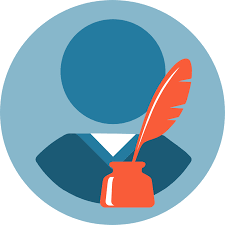Dietitians can suggest to you a diet that you should try to maintain after breastfeeding; this involves protein, fat, carbohydrates and vitamins and minerals in the right proportion. The meals you eat after breastfeeding are especially important, since these provide the baby with all the necessary nutrition it needs to grow and develop properly.
Ideally, the infant should be provided breast milk only at first, before it can be started on solid foods so that the baby gets some colic relief. It is also important that the infant’s parents to ensure that the colic is not caused by their food habits. This is because we often eat food that causes our colic, such as fatty and salty foods, spicy foods, oily food and sugary foods.
Foods that contain preservatives and additives should also be avoided as far as possible because they do not provide the ideal colic relief. When breast feeding, the child may get used to the pressure on its stomach and this may result in the child losing its appetite. The pressure on the baby’s stomach may also be hard to manage in certain situations, such as at night, when the baby sleeps most of the time.
You should also eat good quality milk or formula, and the amount consumed is usually not less than 500 ml every two hours. Consuming a lot of soft drinks and juices is also not advisable because these have added sugar, acids and caffeine that can cause the pain. If you have just started breastfeeding and want to know how to cope with your colic, it is better to try to avoid foods that cause the pain.
Along with some food, the baby should also be supplemented with calcium and magnesium, which can be found in soft drinks, ice creams, chocolate and drinks with added fruits and vegetables. Certain herbal supplements are also available, as well as medicinal formulas for children who suffer from diarrhoea and constipation.
Milk is known to be helpful in easing the pain when crying, so many mothers are now drinking this exclusively. They also avoid the foods mentioned above to ensure that the milk stays pure and fresh.
Because you are breastfeeding, your baby should not be fed formula, unless the doctor permits it. Iodine can cause colic relief, so you should avoid eating dairy products containing iodine and if possible switch to soy milk. Your baby should be given a starter diet, which should include dry cereal, juice, or milk, and should continue to get calcium and magnesium supplements.
There are various methods that you can use to relieve your colic. You can start by soaking your breasts and using a milking machine to make breast milk.
You can also use methods that encourage movement and exercise on a strict diet which does not include solid foods. In fact, this is beneficial because you can stimulate your bowel movement and it could possibly lead to the digestion of your colic. You can also take milk or formula and keep a supply of this ready whenever your baby needs it.
You can get natural colic relief by switching to a homeopathic remedy for constipation. Colic relief can also be obtained by drinking warm water with milk or herbal tea.
So, what you should do if you want to be successful in coping with your colic is to get a good digestive system and get the right kind of food. Some doctors may recommend more than one of these treatments, depending on the severity of your condition.


